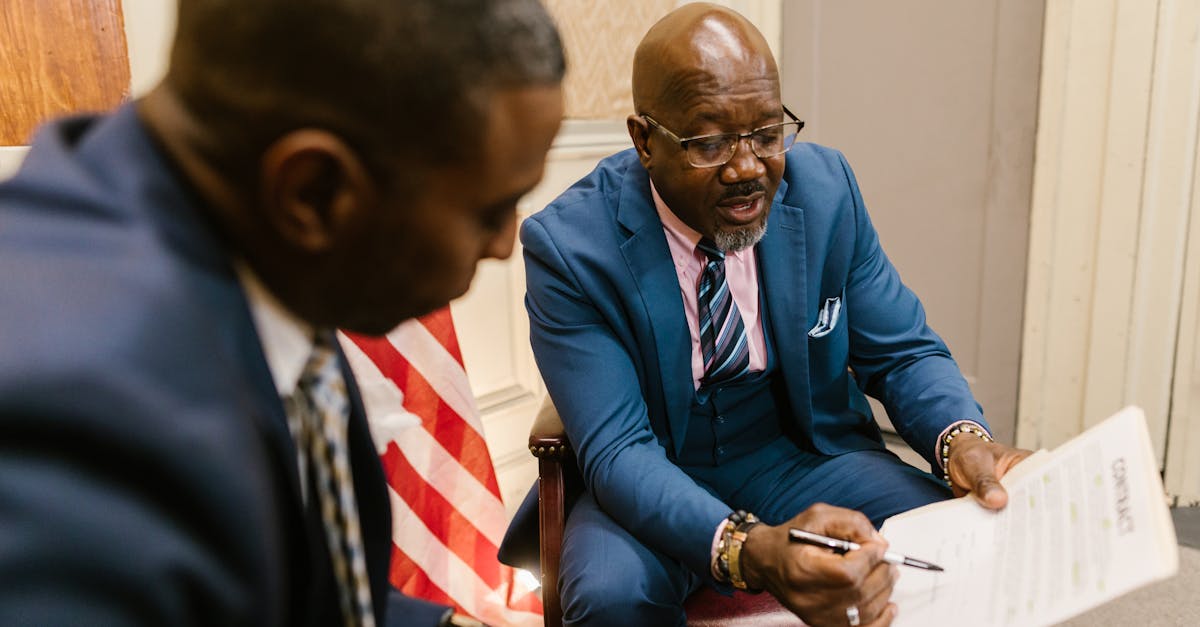
Importance of Legal Representation in Settlements
Legal representation plays a crucial role in settlements to ensure that the rights and interests of all parties involved are protected. Attorneys specializing in dispute resolution bring an in-depth understanding of the legal framework and negotiation strategies essential for reaching fair and favorable settlements. Whether it is a business dispute, family matter, or personal injury case, having a knowledgeable lawyer by your side can make the difference between a successful resolution and a prolonged legal battle. In situations where settlement discussions may escalate, legal representation provides a sense of security and guidance to navigate complexities, making it easier to find common ground and reach mutually beneficial agreements. For those seeking guidance in navigating complex legal processes, consulting with professionals in Litigation and Dispute Resolution near me can provide useful insights and support to effectively manage settlements.
How Lawyers Can Help in Achieving Fair Settlements
When it comes to achieving fair settlements, the role of lawyers is paramount. These legal professionals bring a wealth of knowledge and experience to the table, which can be instrumental in navigating the complexities of settlement negotiations. By engaging in thorough research, meticulous preparation, and strategic planning, lawyers can advocate on behalf of their clients to secure the best possible outcome. Whether it involves drafting settlement agreements, conducting negotiations, or representing clients in mediation sessions, their expertise is essential in reaching a resolution that is satisfactory for all parties involved. For individuals seeking favorable settlement terms, enlisting the services of skilled attorneys can make a significant difference in the outcome of their case.
In the context of litigation and dispute resolution near me, having a competent legal representative can significantly increase the chances of achieving a fair settlement. Lawyers possess the necessary skills to assess the strengths and weaknesses of a case, anticipate potential challenges, and develop effective strategies to overcome obstacles. Their ability to communicate persuasively, analyze legal issues critically, and negotiate tactfully equips them to advocate for their clients' best interests. Through their guidance and advocacy, lawyers can help individuals navigate the complexities of settlement negotiations, ensuring that their rights are protected and that a mutually agreeable resolution is reached.
Factors Influencing Dispute Resolution Outcomes
Factors influencing dispute resolution outcomes depend on various elements that can significantly impact the final decision. The nature of the dispute, the parties involved, underlying interests, and the willingness to collaborate all play a crucial role in shaping the resolution process. Additionally, external factors, such as the legal framework and the presence of a neutral mediator, can influence the outcome of the dispute resolution process. When individuals seek out assistance from legal professionals for litigation and dispute resolution near me, they may benefit from insights and strategies tailored to navigate these influencing factors effectively.
In particular, the willingness of both parties to engage in open communication and negotiation can greatly influence the outcome of dispute resolution. Effective communication can establish a foundation for understanding each party's perspective, exploring potential solutions, and working towards a mutually beneficial agreement. Moreover, the ability to remain flexible and consider different approaches in the resolution process can lead to more satisfactory outcomes for all involved. Seeking guidance from experienced professionals for litigation and dispute resolution near me may provide valuable assistance in effectively addressing these influencing factors and achieving a successful resolution.
Understanding the Role of Mediation in Dispute Resolution
Mediation plays a crucial role in the field of dispute resolution. When conflicts arise, seeking out litigation and dispute resolution near me may lead to considering mediation as an effective strategy. In mediation, a neutral third party assists the disputing parties in reaching a mutually acceptable agreement. Unlike a judge or arbitrator, a mediator does not impose a decision but rather facilitates communication and negotiations between the parties. This process allows for a more flexible and collaborative approach to resolving conflicts, giving the parties greater control over the outcome.
Mediation offers a confidential and informal setting for parties to express their concerns and work towards a resolution. Through open dialogue and active participation, disputing parties can explore creative solutions that address their underlying interests and needs. The mediator guides the conversation, clarifies misunderstandings, and helps the parties focus on finding common ground. By promoting communication and understanding, mediation can lead to sustainable agreements that have been crafted by the parties themselves, making it a valuable tool in resolving disputes amicably and cost-effectively.
Negotiation Strategies in Settlement
Negotiation strategies play a crucial role in achieving a favorable settlement in legal disputes. It is essential to approach negotiations with a clear understanding of one's goals and priorities, while also being open to compromise. Parties involved in settlement negotiations should carefully consider their positions and interests, aiming to find common ground that can lead to a mutually beneficial resolution. Seeking guidance from legal professionals with expertise in negotiation tactics can significantly impact the outcome of the settlement process. Utilizing effective communication skills, maintaining a cooperative attitude, and showing willingness to engage in meaningful discussions are key components of successful negotiations. Engaging in transparent and honest dialogue can foster trust and facilitate the resolution of disputes in a constructive manner.
In the realm of Litigation and Dispute Resolution near me, negotiation strategies are essential for reaching an agreement that addresses the concerns of all parties involved. It is important to approach negotiations with a clear mindset, focusing on finding solutions that accommodate the interests of both sides. Employing principled negotiation techniques, such as separating people from the problem and focusing on interests rather than positions, can help parties navigate complex settlement discussions successfully. By actively listening to the perspectives of all stakeholders, exploring creative options, and maintaining a collaborative approach throughout the negotiation process, parties can work towards achieving a settlement that meets their needs and avoids the costs and uncertainties associated with prolonged litigation.
Effective Ways to Negotiate a Favorable Settlement
Effective negotiation is essential in achieving a favorable settlement in any dispute. To begin, thorough preparation is key. Understanding the strengths and weaknesses of your case, as well as having a clear idea of your desired outcome, will help you navigate the negotiation process effectively. Additionally, conducting research on similar cases and establishing a realistic target for settlement can provide a solid foundation for your negotiations. When approaching the negotiation table, maintaining a professional demeanor and focusing on constructive communication can foster a more collaborative environment for reaching a resolution.
Engaging with qualified legal representation can significantly enhance your negotiation strategy. Experienced lawyers can offer invaluable insights into the legal aspects of your case, assess the legitimacy of your claims, and devise effective negotiation tactics tailored to your specific situation. By leveraging their expertise, you can navigate the complexities of settlement negotiations with confidence and expertise. Utilizing the services of a reputable attorney specializing in Litigation and Dispute Resolution near me can not only optimize your chances of securing a favorable settlement but also streamline the negotiation process for a more efficient resolution.
FAQS
What is dispute resolution?
Dispute resolution refers to the process of resolving conflicts or disagreements between parties through various methods such as negotiation, mediation, arbitration, or litigation.
What is settlement in the context of legal matters?
Settlement refers to an agreement reached between parties to resolve a dispute, typically without the need for a trial or formal legal proceedings.
How do dispute resolution and settlement differ?
Dispute resolution encompasses a range of methods to resolve conflicts, while settlement specifically refers to reaching an agreement between parties to resolve a dispute without going to court.
What are the benefits of opting for settlement over dispute resolution?
Settlement often results in faster resolution, cost savings, and allows parties to have more control over the outcome compared to dispute resolution processes.
Can dispute resolution lead to a settlement?
Yes, in many cases, dispute resolution methods such as mediation or negotiation can ultimately lead to a settlement agreement between the parties involved, avoiding the need for formal legal proceedings.






